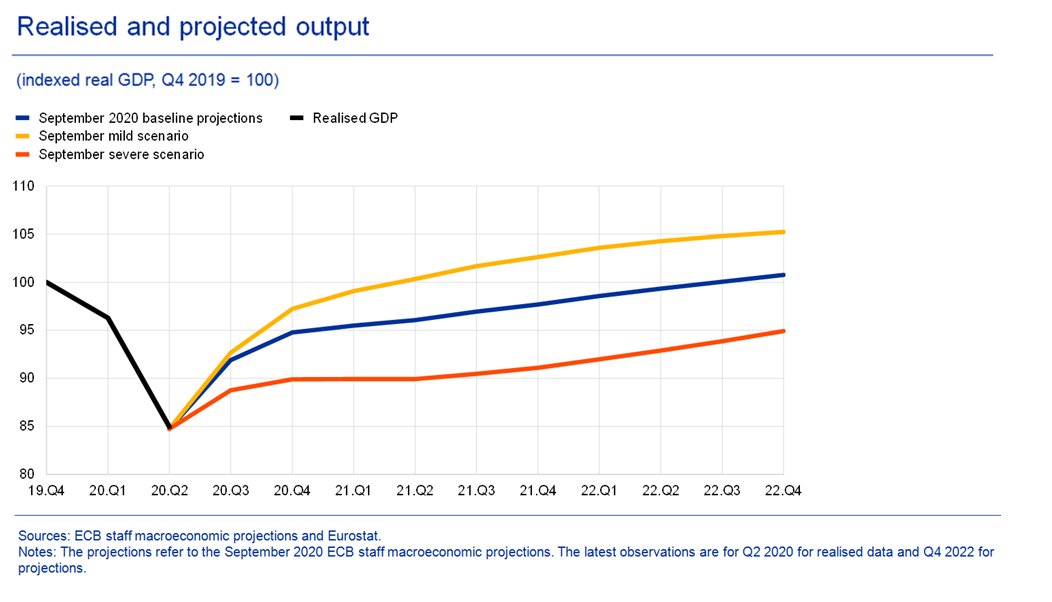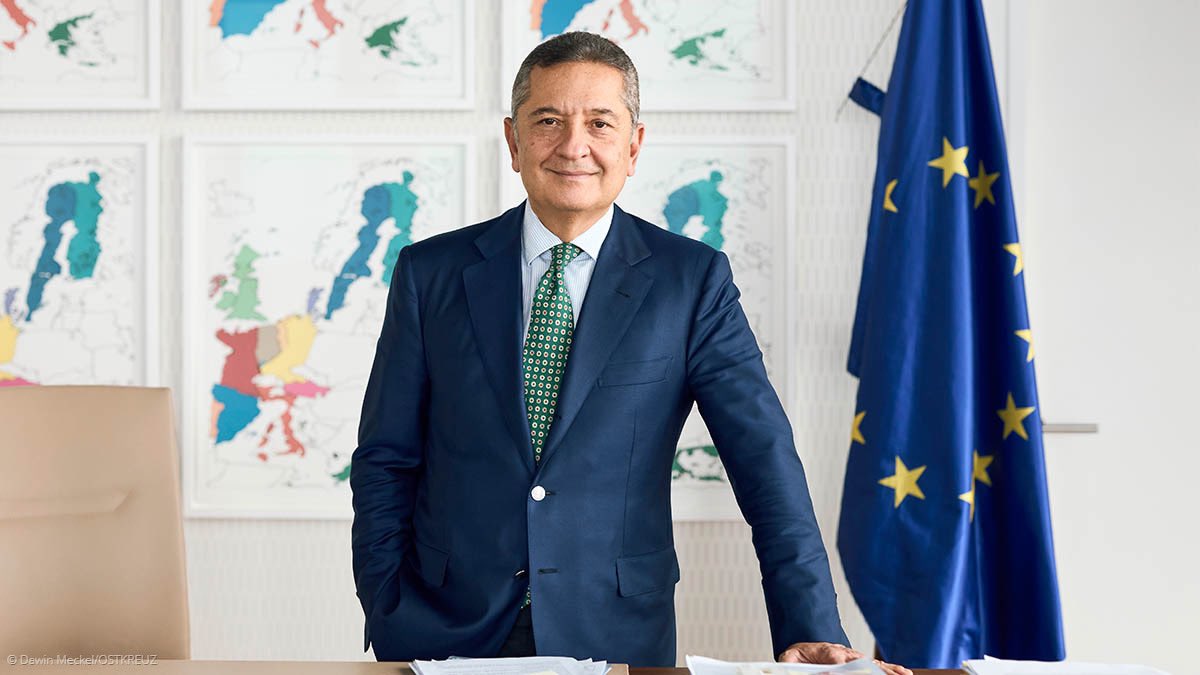(THREAD) While the monetary policy decisions we took in March and June are providing crucial support for the economic recovery, there is no room for complacency, writes Chief Economist Philip R. Lane in #TheECBBlog ecb.europa.eu/press/blog/dat… 1/5 

Following the record decline in output of 11.8 percent in the second quarter, the incoming data indicate a strong rebound in euro area economic activity during the third quarter. Domestic demand is bouncing back significantly and business investment is also recovering 2/5
Economic activity remains well below pre-pandemic levels. Although consumer spending has increased over the summer following a spectacular increase in the savings rate during the first half of the year, many households are likely to continue to be cautious 3/5 

Our updated scenario analysis highlights that the range of possible outcomes remains extremely wide, with a much faster and complete recovery in the mild scenario but a more protracted adjustment path under the severe scenario 4/5 

Over the coming months, a richer information set will become available that will help to inform the calibration of monetary policy. The Governing Council stands ready to adjust all of its instruments, as appropriate. Read the blog post ecb.europa.eu/press/blog/dat… 5/5
• • •
Missing some Tweet in this thread? You can try to
force a refresh








